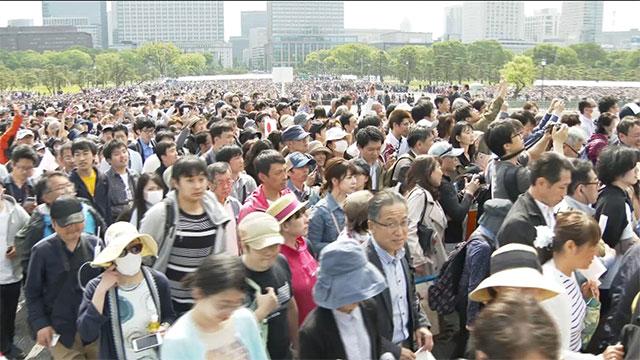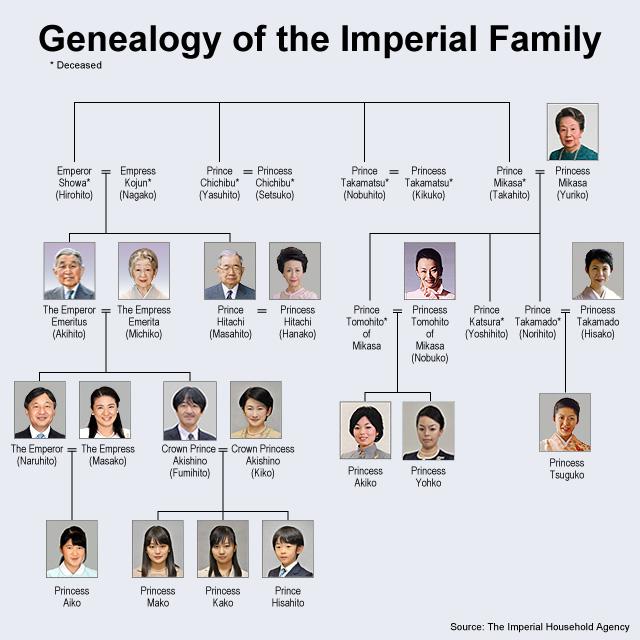Emperor Naruhito and Empress Masako appeared on the palace balcony at 10 am. They were accompanied by Crown Prince Akishino and other members of the Imperial family. The Emperor Emeritus and the Empress Emerita were not present.
"I am standing here today after the ceremonies marking my accession to the Throne. I am delighted and deeply grateful that you have come to celebrate. I wish for your health and happiness. And I sincerely hope that our country will develop further while working together with other countries to pursue global peace."
After the speech, the Emperor and Empress waved to the crowd. The appearance lasted about four minutes.
Tens of thousands of people gathered at the palace to celebrate the succession. Many had been there since before dawn.
A visitor in her teens said she was able to see the moment the Emperor and Empress appeared on the balcony. She said she was happy she got to witness such a historic moment.
A man visiting from Okinawa said he hopes the Reiwa Era will be peaceful and safe, just as the Emperor wished for in his speech.

Hideya Kawanishi, an associate professor at Nagoya University specializing on the Japanese imperial system, says he believes that the Emperor's words indicate he wants to lead the way in working with other nations toward peace. Kawanishi says he feels the Emperor may be looking to take a more active role as the symbol of the State.
Future of the Imperial Family

There are currently 18 members of the Imperial family. With Emperor Naruhito on the throne, only three heirs remain. His nephew, Prince Hisahito, is the only male of the next generation. This makes him the only person through which the Imperial bloodline can continue.
By law, only male descendants of the Emperor can take the throne. But women make up more than two thirds of the family. If the six unmarried princesses marry commoners, they will leave the Imperial family altogether. Without them, the household may not have enough members to fulfill its Imperial duties.
When the Diet enacted a one-off law enabling then-Emperor Akihito to abdicate, lawmakers also adopted a resolution calling on the government to study ways to ensure the stability of succession. This includes the possibility of allowing female members to remain in the family even after marrying commoners.
"The government will focus its efforts on making sure that the series of ceremonies related to the Emperor's accession will be held smoothly, along with celebrations by the public," Chief Cabinet Secretary Yoshihide Suga said. "After that, we will address the matter, respecting the resolution."
The government describes the issue as extremely important and concerning the foundations of the nation.

